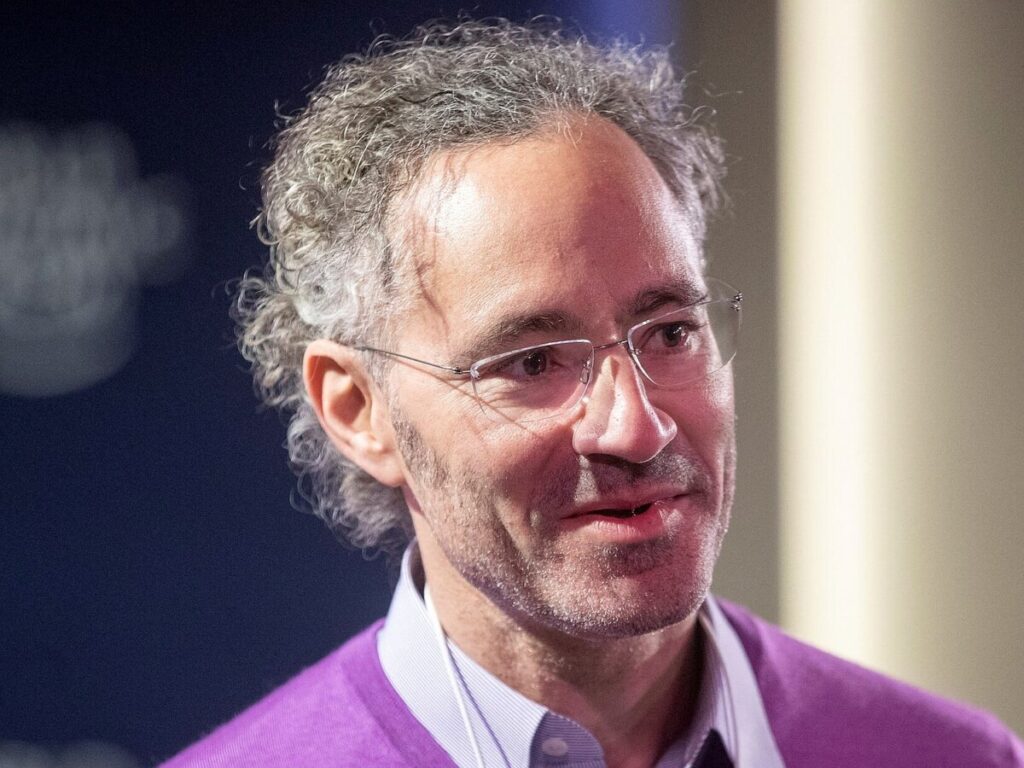What does Palantir CEO Alex Karp’s favorite word actually mean?
In the tech world, few words are as intriguing and esoteric as “ontology,” a term that has become a cornerstone of Palantir Technologies under the leadership of CEO Alex Karp. Often mentioned during earnings calls and SEC filings, ontology represents more than just a philosophical concept for Karp; it is integral to the functionality of Palantir’s enterprise software, Foundry. This platform, which has significantly contributed to Palantir’s impressive stock performance—up over 140% year-to-date—leverages ontology to bridge the gap between a company’s digital data and its physical reality. By establishing a comprehensive ontology, businesses can effectively model their operations, whether it’s managing a global supply chain, ensuring compliance with healthcare regulations, or optimizing predictive maintenance in utilities.
Karp’s fascination with ontology stems from his academic background in philosophy and social theory, which informs his approach to technology and data management. The term itself refers to the study of existence and reality, prompting profound questions about the nature of information and knowledge. In a recent exchange with investor Michael Burry, who has taken a short position against Palantir, Karp defended his company’s ontology-driven strategy, arguing that dismissing it as irrelevant is misguided. Burry countered by emphasizing the importance of a sound ontological framework in drawing valid conclusions from data, highlighting the complex interplay between philosophy and practical applications in the tech industry.
Palantir’s ontology technology is not merely a theoretical construct; it manifests in practical applications that enhance operational efficiency across various sectors. For example, retailers can use it to track inventory and forecast demand, while life sciences companies can manage sensitive patient data in compliance with regulations like HIPAA. Recently, Palantir has introduced an Edge Ontology feature that enables mobile functionality, allowing users to develop applications for advanced technologies such as drones and robotics. As Karp and his team continue to refine and expand upon their ontology-based tools, they solidify Palantir’s reputation as a leader in data analytics and management, making ontology a term that resonates far beyond academic circles and into the heart of modern business strategy.
Alex Karp frequently uses a word that most of us have never heard: ontology.
Roy Rochlin/Getty Images
Ontology seems to be among Palantir CEO Alex Karp’s most-used words.
The philosophical term comes up on conference calls and in SEC filings, and is the name of one of Palantir’s key technologies.
Here’s what ontology is, and how it has powered Palantir to new heights.
Tune into an appearance from
Palantir CEO Alex Karp
, and it’s likely you’ll hear an obscure word: Ontology.
The term is a favorite among Karp and his Palantir deputies. They drop it on earnings calls and in financial filings. They’ve said it’s behind the rise of Palantir’s stock, which is up over 140% year-to-date.
Ontology was even at the center of a spat earlier this week between the CEO and
famed investor Michael Burry
, who bet against Palantir.
“The idea that chips and ontology is what you want to short is batshit crazy,” Karp said on TV, after filings revealed
Burry’s hedge fund
had wagered against the defense tech giant.
Burry hit back on X, dropping the O-bomb twice in his response.
“A fundamental principle of any rigorous ontological/epistemological model — whether philosophical or in data science — is recognizing when your information set is insufficient for valid conclusions,” he wrote.
Insults regarding one’s “ontological” model are not heard every day — and for good reason.
Its technical meaning is, well, lofty. Ontology is “the branch of philosophy that studies existence.” Think queries like, is the phone that you’re reading this on real? Do these words exist? Do I?
It makes sense that Karp, Palantir’s eccentric and wealthy leader, would be familiar with the concept. A student of philosophy, after earning a law degree and prior to cofounding Palantir, he pursued a Ph.D. in neoclassical social theory at Goethe University in Frankfurt, Germany.
When Karp drops the O-word, he typically refers to a component of
software company Palantir’s
enterprise platform, Foundry, which is used to organize and analyze company data in a useful way. Launched in 2016, Foundry has played a critical role in Palantir’s rise.
The company’s Ontology has to do with the philosophical term, at least loosely. The product is responsible for connecting a company’s digital presence to its real-world one — hence the name — including its physical assets, products, orders, and transactions.
Once an Ontology is established, Palantir’s tools can run. For example, a retailer could model its global supply chain and set up alerts for out-of-stock items. A utilities company might use it for predictive maintenance across tens of thousands of miles of grid wire. A life sciences company might use it to store sensitive data, as Foundry enables companies to comply with HIPAA and other relevant standards.
“The Ontology transforms your digital assets — including data, models, and processes — into a dynamic, actionable representation of the business for all users to leverage,” Palantir’s website reads.
It’s a product that the company is advancing. Its new Edge Ontology can run on mobile devices, allowing customers to build apps and embedded software for drones and robots, Sankar said on the company’s third-quarter earnings call in early November.
As
CTO Shyam Sankar
said on an earnings call in May, dropping Karp’s chosen word, of course: “Our advantage comes down to Ontology.”
Read the original article on
Business Insider
Eric
Eric is a seasoned journalist covering Business news.



